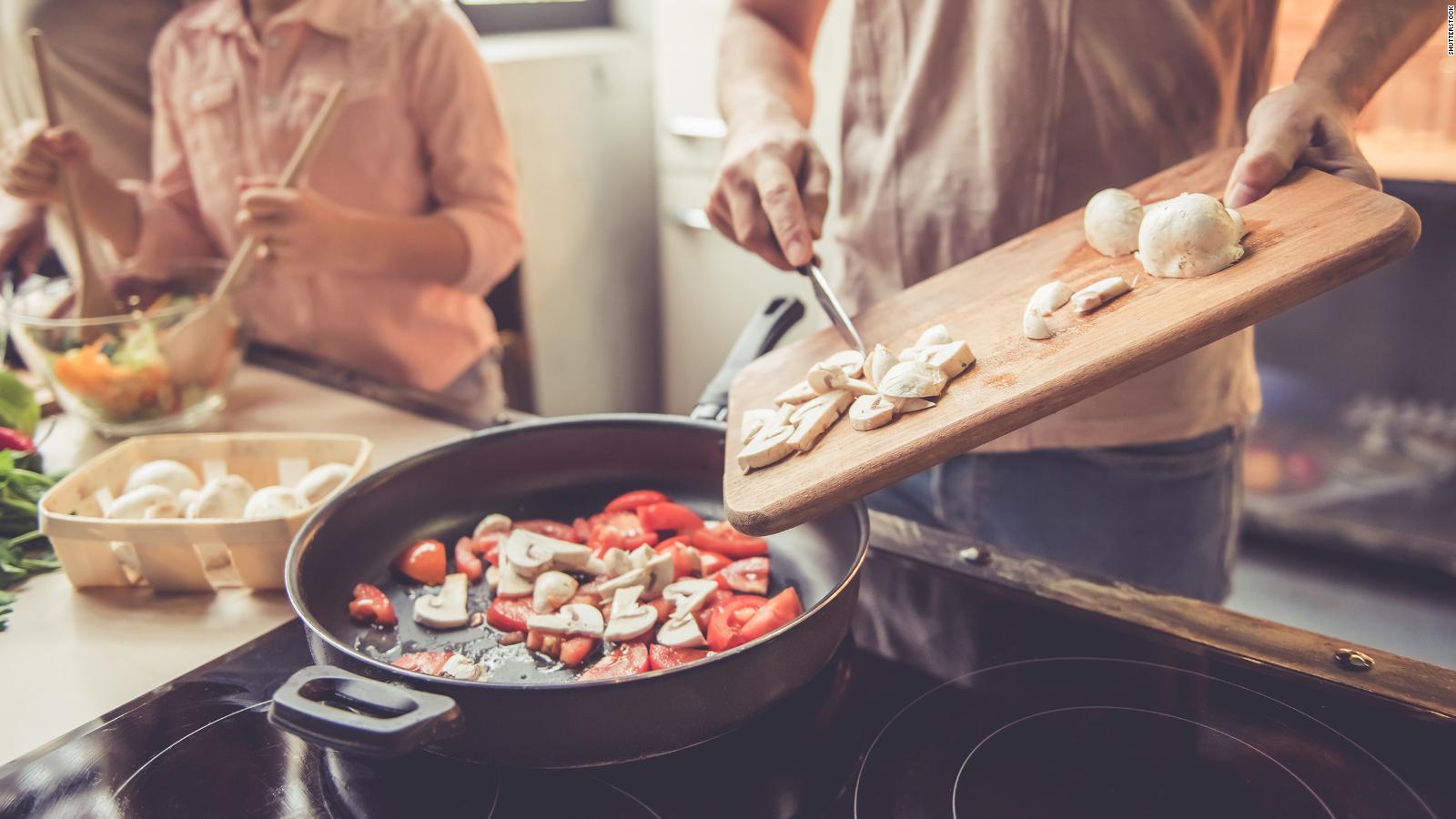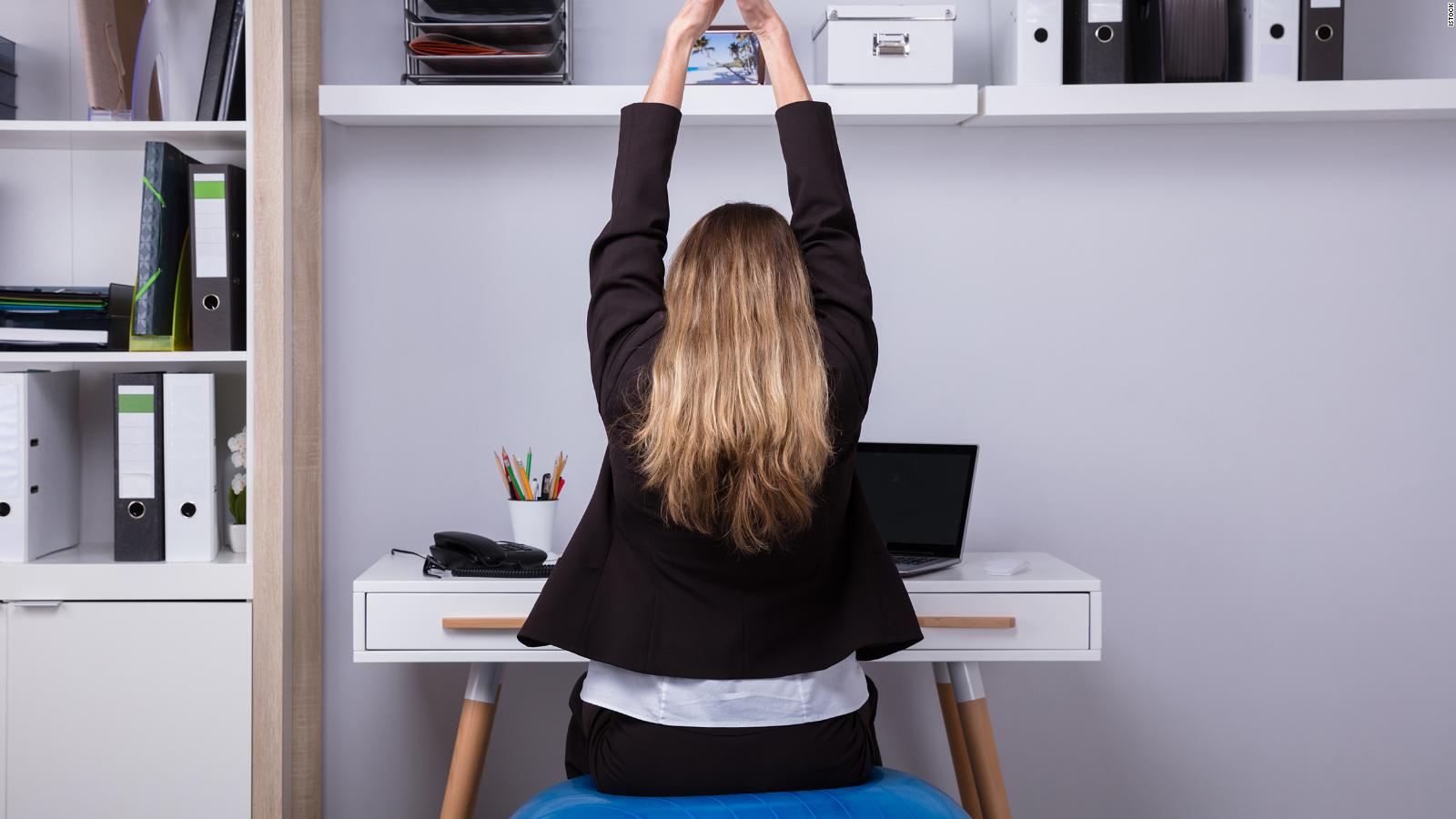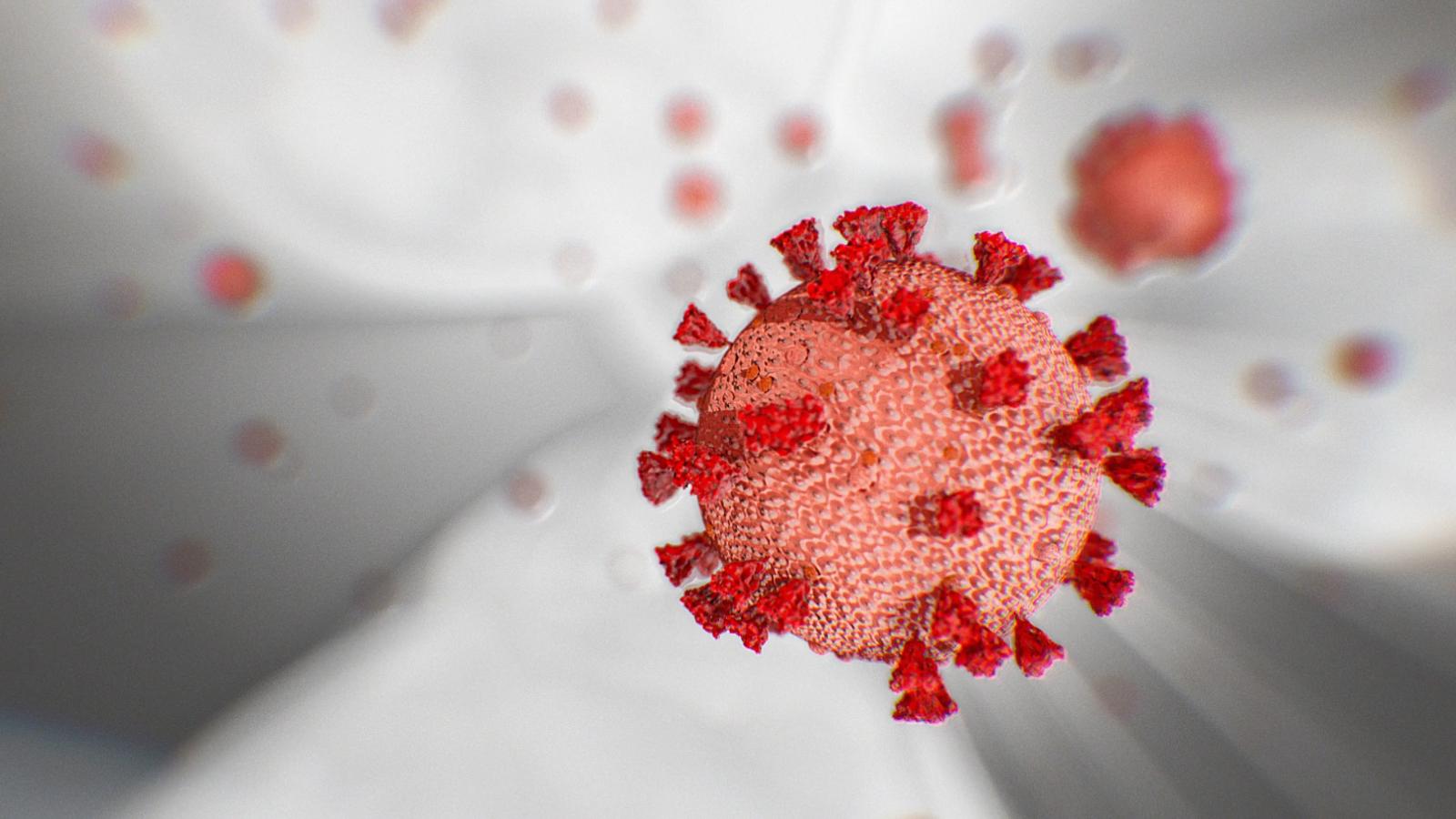For climbers scaling isolated peaks, people stationed on submarines, doctors working in Antarctica and astronauts in space, it's a way of life.
They had to adjust to, and thrive in, isolation in order to live and work under extreme conditions.
Astronauts such as Scott Kelly can spend up to a year in space living on the International Space Station. They spend two hours a day working out to maintain muscle and bone mass, and the rest of their waking hours are spent working on tasks and experiments. The space station is comparable to a six-bedroom house, and six astronauts can comfortably live in it for six months or longer at a time.
Climbers, including Jon Kedrowski, ascend some of the most isolated and challenging peaks in the world. They huddle in tents on their own or with a small crew on the sides of mountains upwards of 20,000 feet, like Everest. They can spend months away from their families in dangerous conditions with limited ways of contacting them.
"I think the first step to understand and handle what is going on is to come to terms with the fact that the next three to six months of our lives are going to be changed and altered forever," Kedrowski wrote in a newsletter, addressing the pandemic. "The faster we get comfortable with accepting this, the better off we will all be.
"And yes -- I have often equated the past 10 days of this isolation on par with any of my four expeditions to Everest, or other 25 expeditions to peaks over 20,000 feet in my career," he told CNN. "Except in the home, we are way more comfortable right now than we are in dining tents with no heat."
Crews manning the National Science Foundation's Amundsen-Scott South Pole Station on Antarctica lead isolated lives with the same people for months at a time -- including during the winter months, where going outside or flying home is impossible. The station holds 50 people during winter, a long period between mid-February and late October, while 150 people can live there during the summer.
As for submariners, Jon Bailey, a robot submarine driver and former Navy submariner, said it best: "During my time in the Submarine Service, I -- along with many others -- endured many weeks and months cooped up in a steel tube under the waves," he shared in a tweet. "Like all other patrols, this one will end. Bring your world closer, focus on little things that you enjoy and make plans for the future. At least you should have a window!"
Here are their tips for coping, staying sane and even thriving.
Establish a routine
Forming new habits and schedules is the number one thing all of our experts agreed on. It provides structure and helps the time pass without it feeling insurmountable or undefined.
European Space Agency astronaut Tim Peake spent 186 days aboard the International Space Station between 2015 and 2016. While he was on the station, Peake even completed the London Marathon using the station's treadmill.
"Habits and routine are so key to keeping everything under control in a confined and isolated situation," he said during a call organized by International Asteroid Day founders on Thursday. "That structure it gives you is vital; it's key to feel that in situations that feel out of control. We need to embrace that at home in these difficult conditions for everyone. We call it normalizing the abnormal."
For Peake, when he was on station that meant having tea and a favorite meal after waking. For astronauts just starting their stint on the station, the initial schedule is rigid: They know when they need to eat, exercise and complete tasks. Gradually, this routine relaxes to give the astronauts more control over their time.
"It provides a positive mental attitude in a new environment," Peake said.
The key to astronauts successfully living with one another for six months or more can be chalked up to what NASA calls EB, or Expeditionary Behavior.
NASA astronaut Anne McClain, who spent 204 days on the station between 2018 and 2019, has been sharing good examples of successful EB on Twitter.
She highlights leadership -- as well as "followership," meaning knowing when to step back and follow another's lead -- as key for those living in confined spaces with one another and beginning a routine together. It's all about trusting each person and knowing they will all accept responsibility.
"Adjust your style to your environment," she said. "Assign tasks and set goals. Lead by example. Give direction, information, feedback, coaching and encouragement. Ensure your teammates have resources. Talk when something isn't right. Ask questions. Offer solutions, not just problems."
Breaking down your day into different categories, and even changing up the rooms where things happen, can help.
"Life at sea is dictated by shifts and routines," Bailey shared in a tweet. "You [could] tell what day it was by what was for dinner. Make a routine now, test it, then write it down & stick to it. Divide your day up into work (if home working) rest, exercise, meals, hobbies, etc. Do the same for kids."
Because you're all going to be spending more time in your home, make cleaning part of that daily or weekly routine, he said.
And it's OK if you need to take some time for yourself as part of the routine.
"The only place private at sea was your bunk," he shared in a tweet. "Make a dedicated private time / place in the routine. Even if you timeshare the front room get everyone a couple of hours alone. Do whatever you want."
Scott Parazynski knows a thing or two about "dealing with isolation, risk and uncertainty," he said. He's a NASA astronaut; has climbed Everest; ventured inside Masaya volcano's crater in Nicaragua; and has supported the winter crews at the South Pole Station via telemedicine.
"Time flies when you have a sense of purpose or mission," he said. "Keeping your mind and body active and engaged, and working towards a higher purpose can stave off the monotony and some of the stressors perpetually around you."
Set goals and start new hobbies
Part of that new routine can include making time for new things you've always wanted to try. Goals and hobbies can act as a motivational tool during uncertain times.
"Even though my life has been altered like most other people, I decided to refocus and create a new plan," Kedrowski said. "I signed up for the New York City Marathon and will start to train for that for later this year when the dust settles."
It's not easy for everyone to take on new things at this time, due to varying circumstances. But if you suddenly have more time than you used to, it might be uplifting to fill it with new things.
"This may be especially difficult for those who've been furloughed during this pandemic, and aren't able to otherwise continue their work from home, and/or having to care for homebound kids," Parazynski said. "If you now find yourself with lots of time but no mission, is it a time to learn a new language, or how to code through an online course? An opportunity to shed some extra pounds, or a chance to read the stack of books that's accumulated on your nightstand? Are you in a position to volunteer to support those most vulnerable? It might be the right time to find your new mission."
Beth Healey, a British medical doctor who has spent time at South Pole Station, said the hardest times may come later, rather than at the beginning. When that slump hits, it's time to find something that will bring you purpose and joy.
"In the beginning, you're super motivated and have grand plans of what you're going to do," she said. "The key challenge is to keep that motivation going. In Antarctica, we would plan out events and goals to get us through that 'third quarter' of winter. In this current situation, we don't know how long it will last, but it's more likely to be a marathon than a sprint."
She suggested putting down specific dates with things next to them that you'd like to accomplish, like mile markers along the way.
Remember to have some fun, too
Routines are great, but that doesn't mean you can't change things up. Even the astronauts on the space station take time for fun. NASA astronaut Christina Koch, who recently returned from a record-breaking stay on the station, said setting aside time for meals together, celebrations and other fun activities felt special.
Part of that was food-based, like care packages sent up to the station including pizza kits, which gave astronauts the opportunity to each create their own and eat together.
"Take time to prepare meals," Bailey shared in a tweet. "One boat did Steak Saturdays, Fishy Friday, Curry & Pizza nights."
And frankly, we all have a little more time now. Enjoy it while you can.
"Realize that this is an extended spring break," Kedrowski said. "This hasn't happened in our lifetime and probably won't ever happen again once we get through the tough parts in the next few months. Relax and rest, recharge your batteries and find ways to have some fun."
Get outside (if you can), take care of yourself and stay active
Astronauts know firsthand that taking care of yourself is key to mission success. They monitor their health on physical and psychological levels, especially during long-term spaceflight.
Self-care for astronauts includes hygiene, time management, sleep and maintaining mood.
"Realistically assess your own strengths and weaknesses," McClain said. "Learn from mistakes. Identify personal tendencies and their influence on your success or failure. Be open about your weaknesses and feelings. Take action to mitigate your own stress or negativity (don't pass it on to the group). Be social. Seek feedback. Balance work, rest and personal time. Be organized."
Taking time to exercise is not only good for you, it provides a mental break that separates you from work or something else you were doing, astronaut Scott Kelly told CNN.
During exercise, you can push yourself physically or turn inwardly to meditate.
"It's possible to get in your car, leave your town or city and get lost outside," Kedrowski said. "For me that's easy; I live in a place in Colorado where my home backs up to wilderness. But I will also get in the car and drive to trailheads. Get creative. Take your skis or snowshoes, or come up with something you haven't done before outside, and go do it.
"Every day I get up and stretch, most days I grab my foam roller and lately, if I'm not leaving for an excursion, I tap into my yoga routine," he added. "I recently started meditating. It allows the body to slow down, reflect and think, but also relax and [be] calm."
Stay connected and take care of others
If you're living with family or friends right now, the astronauts refer to that as "group living EB."
"Cooperate rather than compete," McClain said. "Actively cultivate group culture (use each individual's culture to build the whole). Respect roles, responsibilities and workload. Take accountability; give praise freely. Then work to ensure a positive team attitude. Keep calm in conflict."
But if you're in isolation, it's important to maintain a connection with others. Check on your loved ones, use FaceTime, Skype or other ways of video-chatting and let them know you care.
On the space station, they call it "team care."
"Demonstrate patience and respect," McClain said. "Encourage others. Monitor your team for signs of stress or fatigue. Encourage participation in team activities. Develop positive relationships. Volunteer for the unpleasant tasks. Offer and accept help. Share credit; take the blame."
Astronauts during long-term spaceflight have video chats with loved ones to stay connected.
"Even during radio silence," submariners would receive weekly telegrams from loved ones, Bailey said.
Parazynski has seen the benefits of staying connected and communicating across his varied experiences with isolation.
"It can take extra effort and energy to do so -- I can only imagine how difficult it is for the 44 or so winter-over crew who spend many months isolated together in an isolation ultramarathon at the South Pole Station -- but it makes the journey a shared, more enjoyable and productive experience," he said.
And you've heard it a lot, but we're all in this together
During the Apollo 9 mission, NASA astronaut Rusty Schweickart served as the lunar module pilot for the third manned flight of the Apollo series and the first manned flight of the lunar module, according to the agency.
Schweickart left the spacecraft for a 46-minute spacewalk to test the portable life support backpack that would later be used on the lunar surface. In images captured by his crewmates, Schweickart exits the craft in space with a brilliant view of Earth behind him.
It gave him a unique perspective about our planet and all of the life that exists on it.
"This is one of the very few times when it's very clear to everyone on this planet that we're all one life form, and our life form is being challenged by a little bug we can't see," he said. "But it's so insidious, it has spread through the whole community. We're used to being individuals -- this is kind of a shock to find, in a sense, we're all one and wrestling with this bug. This is an interesting moment in time when everyone on the planet has realized that."
Taking comfort in that -- in the team around us, all on this "mission" -- can help create a positive attitude.
"In anything that's bad and challenging, if you look hard enough, you can find some good in it," Kelly told CNN.
https://news.google.com/__i/rss/rd/articles/CBMicWh0dHBzOi8vd3d3LmNubi5jb20vMjAyMC8wMy8yNy93b3JsZC9hc3Ryb25hdXRzLXN1Ym1hcmluZXJzLWNsaW1iZXJzLXNjaWVudGlzdHMtaXNvbGF0aW9uLXNjbi13ZWxsbmVzcy9pbmRleC5odG1s0gF1aHR0cHM6Ly9hbXAuY25uLmNvbS9jbm4vMjAyMC8wMy8yNy93b3JsZC9hc3Ryb25hdXRzLXN1Ym1hcmluZXJzLWNsaW1iZXJzLXNjaWVudGlzdHMtaXNvbGF0aW9uLXNjbi13ZWxsbmVzcy9pbmRleC5odG1s?oc=5
2020-03-27 16:25:06Z
52780691139811











Tidak ada komentar:
Posting Komentar